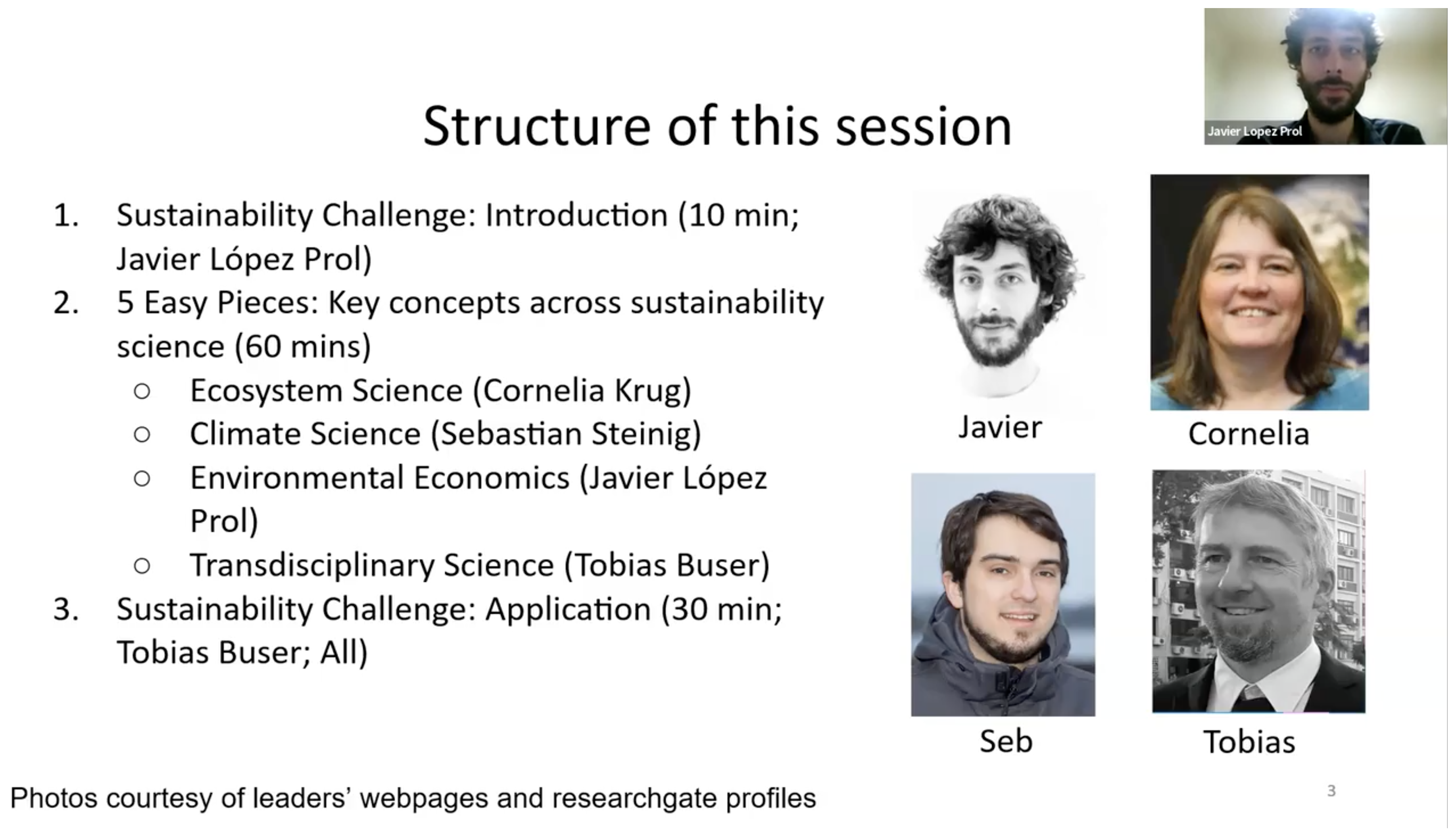SRI 2023 in Panama

The Sustainability Research & Innovation (SRI) Congress is the world’s largest interisciplinary sustainability conference. The third edition was held last week in Panama City and I travelled there together with Paul Valdes on behalf of PAGES to talk about (paleo)climate science and its importance for sustainability research. I brought some custom visualisations with me and co-organised two workshops on:
- Bringing the perspective of time into Sustainability Science and Practice
- Sustainability science short course pilot project
#1: Bringing the perspective of time into Sustainability Science and Practice
Abstract
The idea of enabling sustainability within an era of climate and global change at its core depends on the baseline against which change is experienced. These baselines, and the thresholds for sustainability, may depend sensitively on geography and associated vulnerability with one or more sustainable development goals. This workshop is designed to introduce SRI attendees interested in near term sustainability solutions to the perspective and context provided by past and future environmental variability and change simulations. We will introduce a multidimensional online visualization of these climate simulations. Participants will use the intuitive, hands-on visualizations to analyze and evaluate for themselves to what extent proposed solutions for sustainable development in the 21st century are resilient to past and future changes in mean conditions and extreme events. We will then lead a discussion of participants’ results to discover common themes and identify further ways to fuse the temporal perspective into sustainability practice.
We wanted to use the workshop to put any projected future climate changes into the perspective of past changes on geological timescales. For this, I made a new visualisation just focusing on simulated temperature and precipitation changes and put the last 100 million side-by-side to the next 100 years. The sliders allowed participants to explore common features of changes (e.g. polar amplification, land-sea contrasts, enhanced hydrological cycle), but also appreciate the vastly different timescales. Double-clicking anywhere reveals climatological chanegs of the selected region in the deep past and for multiple future scenarios (e.g. a 1.5 °C or 3 °C world). Finally, we produced an interactive map (see below) to find future climate analogs for the participant’s home countries using the online visualisation (similar to the one produced by Burke et al., (2018)). Unfortunately, we ran a bit out of time at the end, but the overall concept worked really well. The material is online on Google Slides and the new visualisation is at data.deepmip.org.


#2: Sustainability science short course pilot project
Abstract
The 2 hour Training Workshop window will be divided into the following modules. We will use active learning pedagogy so that participants can discover results and form their own conclusions and takeaways, and also inject fresh ideas and perspectives into the session leaders’ thinking: [5/5/5 mins] Motivation: Why a common language and grounding in key ideas matters. We will begin with an icebreaker in which the leaders miscommunicate across disciplines in common ways (prerecorded video, or live role-play), an online survey of knowledge, and discussion of the results. 1. [15/15/15/15/15 mins] 5 Easy Pieces in Sustainability Science: 10 minute introductions (with 5 mins discussion/Q&A/breaktime each) to one or two key concepts in each of: Climate System Science; Ecosystem Science; Environmental Economics; Sustainability Sociology; and Action Research. 2. [15 mins] Sustainability Challenge: Leaders will present a realistic but simplified and idealized sustainability problem to participants that relies on application of the key concepts, to authentically test whether they can communicate and collaborate to solve the problem. 3. [15 mins] Summary: Using an online collaborative tool, participants and leaders post short reflections on what they learned, what flaws they discovered in the pilot design, and retake the pre-session quiz to assess what they learned as a result of the session.
The second workshop was a pilot study for a new Sustainability short course proposed on the 2022 Future Earth Assembly. We gathered experts from Ecosystem Science, Climate Science, Environmental Economics and Transdisciplinary Science (see slide below) to discuss a sustainability challenge: planning a new project to install an offshore wind farm to produce clean electricity. AFter short introductory lectures from each disciplines, we discussed the different aspects of the problems, potential research quetsions, how to manage potential trade-offs and which parties to include in the decision process. We are currently working on a blog post about the outcomes of the workshop. In the meantime, you can find the Google Slides and a recording online.

Enjoy Reading This Article?
Here are some more articles you might like to read next: